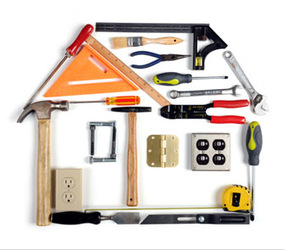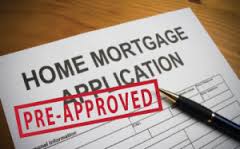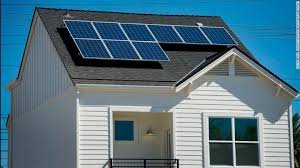Neighborhood Red Flags
 There is no such thing as a perfect neighborhood and every zip code has pros and cons. You might love a house, but if it’s in a troublesome area, it may have a negative impact on your day-to-day life, as well as the resale value of the home. Here are Five Neighborhood Red Flags to be aware of while checking out a potential new neighborhood.
There is no such thing as a perfect neighborhood and every zip code has pros and cons. You might love a house, but if it’s in a troublesome area, it may have a negative impact on your day-to-day life, as well as the resale value of the home. Here are Five Neighborhood Red Flags to be aware of while checking out a potential new neighborhood.
- Too many houses on the market?
A neighborhood with an abundance of homes for sale indicates there may be something causing homeowners to leave. It could be something about the neighborhood itself, such as social issues like increased crime or falling school ratings, or gentrification of the area raising living costs and reducing affordable housing options. Alternatively, there could be many houses up for sale because of the homes themselves. If a neighborhood was developed all around the same time period and the homes appear very similar, it could be evidence that the houses were constructed by the same builder. Therefore, the homes will age at the same rate and may run into similar repair issues. Multiple homes for sale in this type of development could indicate they were built with poor quality. Think about this when wandering through a potential neighborhood!
something causing homeowners to leave. It could be something about the neighborhood itself, such as social issues like increased crime or falling school ratings, or gentrification of the area raising living costs and reducing affordable housing options. Alternatively, there could be many houses up for sale because of the homes themselves. If a neighborhood was developed all around the same time period and the homes appear very similar, it could be evidence that the houses were constructed by the same builder. Therefore, the homes will age at the same rate and may run into similar repair issues. Multiple homes for sale in this type of development could indicate they were built with poor quality. Think about this when wandering through a potential neighborhood! - Are the homes and yards in good condition?
A well-maintained property is a sign that homeowners care about where they live. It doesn’t matter if the homes on the street are 1,500 square feet or 10,000, it is obvious to see when a community cares about their neighborhood and its perception. If you feel that all the other homes on a street are in disrepair and the yards are dead or overgrown, you may want to avoid moving into this area. It’s likely that a neighborhood such as this may lead to falling home values as well, so think about your investment before making a purchase. - Less-than-stellar school ratings?
Have you taken a look at ratings of the surrounding schools? Just like the previous red flag, you can tell a lot about a potential neighborhood by looking at the nearby schools. A shrinking school system may suggest an aging population, or it could signify school quality and the community’s attitude toward public services in general. If you have children or are thinking of starting a family, you will want to pay special attention to school ratings online or ask on community social media pages. - Where are all the people?
If you attend an open house in the neighborhood where you are thinking of moving, take note of how many people are out and about. Did you see any kids playing in a yard or residents spending time on their front porch? This could demonstrate the culture of the neighborhood, or it could indicate that residents do not feel safe spending time outside in this area. - How are the streets and sidewalks?
It is common for residential streets to have some potholes or crumbling sidewalks in areas, especially if your region experiences harsh seasons. However, an excess of infrastructure issues could indicate a town or city is lagging in public services. If house hunting in the spring or summer, you won’t necessarily know how the town will maintain the roads in the middle of winter. If a street light goes out and you call the city works department, will they see to a repair, or neglect this neighborhood? See if you can talk to any potential neighbors to ask these questions.
There is a lot to think about when planning a move. Not only do you have to think about the style of the house and the number of bedrooms, but a smart homebuyer must also consider whether the neighborhood meets their needs. Do you want to live in a tight-knit community where everyone knows each other by name and your next-door neighbor would lend you a cup of sugar in a pinch? Or do you desire a more secluded neighborhood where everyone minds their own business?
If you are buying a new home, remember to look beyond just the house, and evaluate a neighborhood as a whole. Check Five Neighborhood Red Flags on this list, and if the neighborhood passes the test, it could be great for your next home!
Then reach out to Me at 860.945.9284 to discuss the right mortgage option for your family and to take advantage of my FREE Jump Start Mortgage Pre-Approval service and be ready to make an offer on your dream home

 planning and knowledge of sales cycles.
planning and knowledge of sales cycles.
 Watch out for mortgage fraudsters that are lurking and ready to take advantage of unsuspecting borrowers.
Watch out for mortgage fraudsters that are lurking and ready to take advantage of unsuspecting borrowers. Your Dream Home is Within Reach!
Your Dream Home is Within Reach!
 payments after the loan has closed. Mortgage Recasting applies only to Conventional Loans.
payments after the loan has closed. Mortgage Recasting applies only to Conventional Loans. Whether you are considering buying a home or not, having your finances organized is important. The ability to manage money well can help you afford a life that is a little more comfortable and a little less stressful. These tips will give you a jump start on being more in control of your money without the need of a finance degree.
Whether you are considering buying a home or not, having your finances organized is important. The ability to manage money well can help you afford a life that is a little more comfortable and a little less stressful. These tips will give you a jump start on being more in control of your money without the need of a finance degree. Call
Call Solar panels have increasingly become more popular over the past few years, and don’t show any signs of slowing down. Leasing options have contributed to this growing number, since some leasing programs require little to no money up-front. The deals can seem attractive, but a question for homeowners is, Should I Lease or Buy Solar Panels?
Solar panels have increasingly become more popular over the past few years, and don’t show any signs of slowing down. Leasing options have contributed to this growing number, since some leasing programs require little to no money up-front. The deals can seem attractive, but a question for homeowners is, Should I Lease or Buy Solar Panels? Freddie Mac Now Offers Special Mortgage Incentives for Doctors and Physicians
Freddie Mac Now Offers Special Mortgage Incentives for Doctors and Physicians

You must be logged in to post a comment.